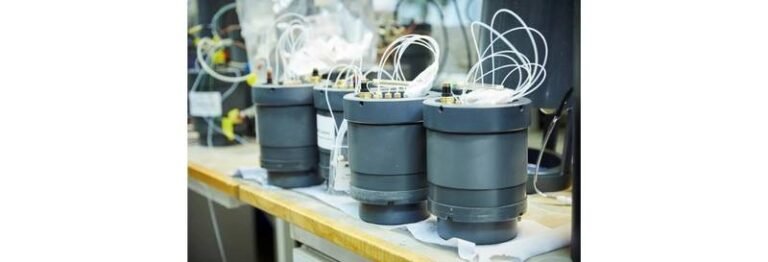Advancing Sustainable Ocean Science with Next-Generation Sensors
The UK’s National Oceanography Centre (NOC) has recently been awarded £4 million to enhance its marine autonomous systems fleet with cutting-edge sensing capabilities, aimed at advancing sustainable ocean science. This funding, provided by the Natural Environment Research Council’s (NERC) Future Marine Research Infrastructure (FMRI) program, will support three innovative projects led by top scientists and engineers at NOC.
The primary goal of these projects is to develop advanced sensors targeting 10 different biogeochemical essential ocean variables, ranging from physics to nutrients and carbon. These sensors will be integrated into autonomous underwater vehicles, including gliders and NOC’s Autosub Long Range (ALR), to enable more precise and comprehensive data collection.
Once developed, these sensor advancements will be made accessible to the UK marine science community through the UK’s National Marine Equipment Pool, which is the largest centralized marine scientific equipment pool in Europe. This initiative is part of the National Marine Facilities managed by NOC, further enhancing the research capabilities available to marine scientists across the UK.
Kristian Thaller, the FMRI Program Director, emphasized the significance of this investment in sensor innovation, stating that it will position the UK at the forefront of marine research capabilities. These advancements are crucial in addressing the urgent need to observe, understand, and predict changes in the ocean, especially in the face of ongoing environmental challenges.
Supported by NERC’s FMRI program, the Accelerating Adoption of Sensor Innovation (AASI) initiative aims to demonstrate how innovation in marine sensor technology can be effectively translated into deployable autonomous research capabilities. The funding will facilitate the development of three key sensor projects, with a focus on integration, data management, and validation.
The three sensor projects include:
1. ASIMOV (Autonomous Sensors for fast In-situ Measurements of nutrient Ocean Variables) – led by Dr. Allison Schaap, this project aims to enhance the performance, speed, and reliability of nitrate and phosphate lab-on-chip sensors for use on Teledyne Slocum gliders.
2. MaSCOt (Marine Sensors for Carbon Observations) – led by Dr. Socratis Loucaides, focuses on advancing high-accuracy and precision lab-on-chip sensors for the marine carbonate system, optimized for deployment on gliders.
3. SixSense – led by Dr. Andrew Morris, this project aims to develop a miniature multi-parameter sensor capable of measuring six key parameters essential for biogeochemical, physical, and environmental measurements. These sensors will be integrated onto ALRs, gliders, and other platforms for comprehensive data collection.
The FMRI program’s overarching mission is to revolutionize marine research infrastructure, delivering cutting-edge capabilities that enable scientists to better observe, understand, and predict changes in the ocean. By investing in sensor innovation and autonomous research capabilities, the UK is poised to remain at the forefront of marine science and contribute significantly to global efforts in sustainable ocean research.

